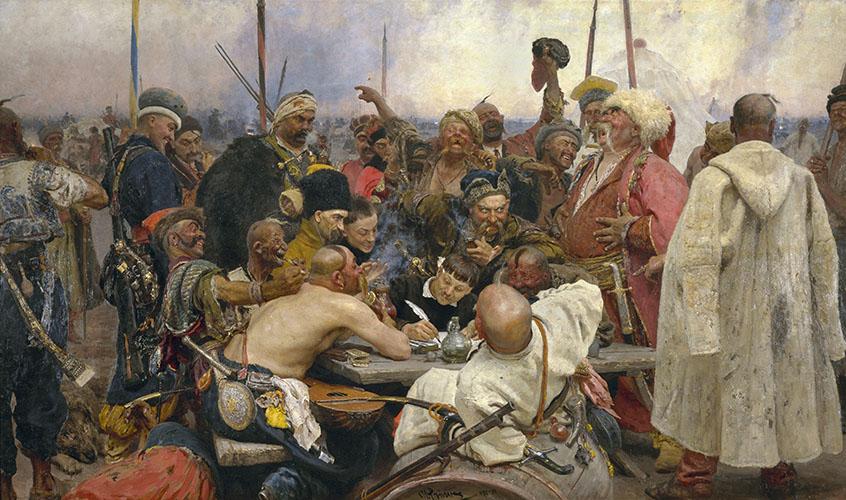(This article originally appeared on Malcolm Kyenyue’s personal blog, Power & Politics. It has been lightly edited and reproduced here with the author’s permission.)
There is, as happens so often these days, a spectre haunting the imagination of the western left. That spectre is most commonly dubbed “Strasserism,” though it has other names, such as “red-brownism,” “nazbolism,” or more unwieldy names such as “Angela Nagle leftism.” When I came into the left at the beginning of the last decade, these terms did not exist in any meaningful way. As far as I and the people I knew were concerned, “Strasserite” was an incredibly obscure term used exclusively by online neo-Nazis in their petty, internecine conflicts. None of us paid them or their silly ideological totems any heed.
At the beginning of the first half of the 2010s, the left I was a part of was finally starting to feel hopeful again, after the disorientation and loss of direction that came with the fall of actually existing socialism. During the long winter years of the ’90s and early ’00s, people either hopelessly and bitterly clung to a prophecy that everyone else had now fully discarded, or they tried finding new boutique causes to replace the ones that had failed. To take my native Sweden as an example, two of the more significant new causes were opposing neo-Nazis and opposing globalization. There were some victories—or at least, people liked to think so—but the idea of actually achieving political power was dead in everything but name. The left mostly came to accept the role as the social conscience of liberalism, or in the case of antifascism, fancied itself as the Batman protecting end-of-history Gotham City. The streets of triumphant liberal society might have been gritty, the politicians corrupt and undeserving, but antifascist Batman still rose out of bed every night to protect the craven and the low from monsters lurking in the shadows. Or so they liked to think. Most of the time they just hung out and drank beer.
This political and intellectual period was already seriously winding down by the time I joined, on the heels of the great financial crisis in 2008. A few years on, and people were openly talking about how Marx was right, how capitalism and neoliberalism had failed, and that the left possessed the only alternative to the powers that be. Battered and humiliated, but not fully beaten, and with the tools and the will to get back into the fight—that was how much of the left saw itself when I joined it.
All the details of the intervening decade are beyond the scope of this essay, but it’s fair to say that the left today is more broken and politically defunct than at any point since the fall of the Soviet Union. In fact, a case can be made that the crisis facing the left today is more serious than the crisis of the late ’80s and early 90s. “Left populism” as a political model has failed. Jeremy Corbyn has presided over the worst labour party showing in nearly a century. The ‘Sanders moment” is over, and there’s no sequel to any of these failed left projects anywhere in sight. This decline is likely terminal and irreversible, because unlike the decline in the ’90s, the left no longer has any significant working class support. In fact, with each new “left revival” à la Corbyn, the constant bleeding of working class support only seems to accelerate.
Nobody reads the Strasser brothers, not even the neo-Nazis who threw accusations of Strasserism at each other decades before anyone else.
A certain Marty MacMarty recently recorded a sort of post-mortem of the Bernie Sanders campaign, and I would recommend everyone who hasn’t to give it a listen, as it lays out most of the central contradictions that are at play within the left. Being familiar with the sort of analysis MacMarty makes will be useful here, because the aim of this essay is not to offer a critique of the left, or a plan for the left going forward. The goal is instead to explain why the left is in a panic over this thing it has taken to calling “Strasserism,” to give an outline of its true political content, and to explain why the left cannot stop it nor avoid its eventual demise at the hands of us, its dear friends and old comrades.
We begin with the obvious. Strasserism does not actually exist. Nobody reads the Strasser brothers, not even the neo-Nazis who threw accusations of Strasserism at each other decades before anyone else. Nobody outside of Russia—and for that matter, nobody inside of Russia—cares about the intellectual output of the National Bolshevik Party (if such an output could even be shown to exist). The reason the term Strasserism has been brought out from the dustbin of history by the contemporary left is because said left is currently in the middle of a social and political panic, and this panic has at least two central functions.
Firstly, panics such as these are one way for a group of believers to deal with a situation where prophecy fails. For the left, the only thing it knows today is constant failure. Like any religious cult, the failure of prophecy can only be redeemed by shedding the blood of those members identified as polluting the faith. The price of social cohesion is the turn toward constant purges.
Secondly, the panic over Strasserism marks the central class contradiction that the left is completely unable to resolve. Here, it is important to understand that the way this class contradiction is papered over is by pretty much everyone agreeing to hide it in plain sight. It is not controversial or shocking in the slightest to point out that an organisation like the DSA consists almost entirely of middle class people, or that identity politics scares away workers, or anything of the sort. You will not be branded a ‘Strasserite” for saying any of this, because everyone knows it. In fact, it is in some way necessary for the ideological reproduction of the left that everyone involved in it sort of makes fun of just how “out of touch with the workers” it often is.
Partaking in this ritual of self-depreciation does not mark you as an outsider. It is only if you break the rules of the game, only if you acknowledge the man behind the curtain, only if you point to the basic truth hidden behind this outer layer of ironic self-mockery that you become one of us, one of the so-called Strasserites. This truth is a fairly simple Marxist truth. Classes have class interests, and so the idea that you could have a political movement—the left—that was well and truly dominated by one class, yet still wholly committed to the class interests of another class, but also just too bumbling and out of touch to ever do a good job of looking out for the class it supposedly cares about is, to put it extremely mildly, a dubious idea. It is much more likely that a political movement dominated by one class will also be more or less entirely dedicated to pursuing the class interests of that class, while also being unable to take any strong action that goes against the interests of its dominant class.
Making fun of the left is pretty much the only real “political activity” that a majority of contemporary leftists partake in. But this is, to borrow an argument familiar to readers of Žižek, an inherently non-transgressive act. It supports the idea that the left is just too wacky, silly, lazy, or stupid to achieve its goal, which is still assumed to be the emancipation of working people or some such. True transgression within this context is pointing out that the left’s class position is incoherent. Amusingly, the editor of Current Affairs, Nathan J. Robinson, recently got into hot water over an audio clip of him saying that socialism would have been much better if Marx hadn’t been born, but this in fact makes Robinson’s political position less incoherent than the majority of his angry critics. There was a socialism before Marx, and it was utopian and based on human reason and moral progress. There are good reasons for why this brand of socialism fell out of favor, but within its context one can definitely hold the view that a small class of enlightened and educated well-to-do people, acting out of the goodness of their own hearts, will eventually bring about socialism by lifting up the poor, racist, and/or stupid proles. You don’t have to agree with it, but it fits together.
A central premise of Marxist, materialist, or scientific socialism, on the other hand, is that classes simply cannot act this way. Classes pursue their own interests and act politically not out of greed, or generosity, or any other personal bit of sentiment, but due to historical and economical pressures. It is this very simple fact that makes the “materialism” of someone like Bhaskar Sunkara, and of most leftists of his stripe in general, so incredibly contradictory. For it to work, there has to be an unstated agreement among the faithful to never seriously use the tools of Marxist analysis on the left itself. Any and all self-examination must remain on the level of personal discussion (“Can so-and-so really be a socialist, when their parents are so rich?”). The punishment for transgression against this agreement, for breaking the most sacred code of Omerta the modern left has, is swift and severe: you will be ostracized for this, and you will be added to the ever growing list of “Strasserites” and “secret Nazis” who tried to lure the faithful away from the true path. What happened to Angela Nagle is instructive in this regard; her article, The Left Case Against Open Borders, was an attempt to argue against unrestricted immigration from a class-based, materialist perspective. It’s quite likely—and also very amusing—that she would have received less sustained hatred from the online left if she had written that immigration shouldn’t be allowed as long as non-white people talk funny and smell bad.
I should point out that I myself got “cancelled” in early 2017, in much the same way as Nagle. In my case, the offending essay was an attempt to lay out why the Swedish left constantly failed to make inroads among immigrant voters, even though it saw itself as the natural home for these voters. To give readers an idea of the general situation, the Swedish Vänsterpartie (literally “the Left Party”) actually registers less support among immigrant women than the “anti-immigrant,” “anti-feminist party,” the Sweden Democrats. The “chuds and racists” of Sweden Democrats that the Left Party loves to make fun of are quite literally taken more seriously and remain more popular among immigrants than them—and this problem has only gotten worse with time! To cut a long story short, the essay argued that the category of “immigrant” is politically incoherent and useless as a tool of socialist analysis, because, 1.) people tend to maintain their own ethnic identities even as they migrate, 2.) there are huge class differences between and within different ethnic groups, 3.) as the Swedish political system actively tries to build and maintain ethnic political machines, the people that run those machines must be assumed to have a rational materialist interest in maintaining them, rather than selflessly fighting for International Socialism or what have you.
I bring my own example up not to relitigate old battles but to underline the point that the sin which earns people the label of “Strasserite” or “chud” or “red-brown Nazi” has nothing to do with racial animus, or even the issue of immigration more generally. Conjuring up the threat of racism and the ghosts of Nazi Germany is not done because it is true, but because it is necessary. In my case, having a father who came to Sweden to work from central Africa proved to be an embarrassing but fairly minor speed bump on the way to declaring me a fighter for Aryan blood purity. There is nothing foolish or irrational about any of this; our esteemed comrades are simply doing the only thing they can do, faced with a contradiction they are unable to resolve and a movement that is rapidly falling apart.
As I have said, nobody remembers the Strasser brothers, and “Strasserism” is not a serious ideology anyone holds today. But we exist. We, forgotten friends and discarded comrades shall soon return to rattle our chains. What alienated us from the left was not racism, nor malice, nor bloodthirst. What made us first strangers and then enemies was a political disagreement—one the left would like to bury and pretend does not exist: the question of the fate and future of the social and economic class the left recruits from and fights for. Even as it tries to hide its self-centered struggle behind the vaunted political totems of a 20th century that has been dead for decades, the left cannot escape this question.
I would claim that the “Strasserite” class-analysis of politics in the West and the role of the left today has a few central features. To start: as the economies in western countries have shifted over the past decades, a new sort of class of people has sprung up and grown in social and political importance. In the united states, the most common name for this class is PMCs; the professional-managerial class. The name is less important than its function and political trajectory. To brutally simplify things for the sake of brevity, the notable feature of many PMCs as political actors is a blend of political liberalism and cultural progressivism, merged with a political project aimed at increasingly subsidizing their own reproduction as a class—ideally by means of state transfers. The state should forgive student debt. The state should dabble in reparations. The state should hire “ideas people” to write up reports and think pieces about reparations. The state should create new racial justice commissions, or just generally create more jobs that can employ people who, by dint of belonging to this class, feel that taking a job at Walmart means that capitalism has failed and it’s time for a Revolution. The most radical, put-upon and economically insecure parts of this class today naturally gravitate toward the left, because the left is—no matter what leftists delude themselves by saying—a fairly focused, competent and credible class project. When Jeremy Corbyn came out of nowhere and became Labour party leader, it was a real grassroots movement that brought him there; a grassroots movement of students and people who either have ambition to move up the ladder or a legitimate fear of looming proletarianization, of falling down the social and economic ladder and finding themselves among the proles.
The particular form of “pro-worker” rhetoric these members of the PMC use mostly boils down to a sort of charity. “Vote for us, and we will give you higher benefits and free broadband,” Labour recently tried to tell the recalcitrant workers of the British north. It didn’t work. This mode of charity is hardly selfless—it would be a free gift from these PMC activists given to their precious salt of the earth proletarians. And like all gifts it would be reliant on the goodwill and generosity of the gift giver. Its main function would also be to feather the ever growing number of nests for this class of comfortable, university-educated administrators. And when some leftists begin seriously debating why racists should be denied medical care from the NHS, one starts getting a sense of just how much hierarchical domination their future “worker’s paradise” promises to deliver to actual workers.
The point here is not a moral one. After Labour lost, one exasperated member and activist despaired over how blind the workers were, how easily fooled they were by tory propaganda. “Don’t they see how evil capitalism is? How brutal and unfair it is?” this activist wrote. “I have many friends with good grades who are stuck working at grocery stores, stocking shelves.” Anyone who pretends to be some sort of materialist cannot in good conscience make fun of sentiments like this; it is completely rational for someone in that position to think that the evils of capitalism are somehow laid bare for the world to see when their friends are forced to stock shelves like a common peon in order to pay the rent. That the other workers at the grocery store probably find this way of thinking completely ludicrous and arrogant is obviously besides the point. Politically speaking, the fury and energy that proletarianization engenders should never be underestimated, because it causes political explosions. Jeremy Corbyn successfully challenged the political cartel that had been running Labour on the back of such a political explosion.
We should not make fun of the activist who despairs at the state of the world when good, solid middle class people with solid grades can no longer achieve the upper middle class lifestyle they were promised. It is however a basic political truth that a worker’s movement consisting of people who are angry at the prospect social and economic demotion—in other words, people who are fighting against the cruel fate of having to become workers—cannot ever succeed. Promising free broadband, or unlimited Space Communism, or some other weird fantasy world where getting angry at having to work like an average person is acceptable because nobody has to work won’t really change that.
On top of this, the more this class of people who are now tethering on the edge of proletarianization grows, the more parasitical they will become, must become. If the destructive spirit of unfettered capitalism decides that it no longer needs a large middle class, the only actor with the power to save this historically obsolete class is the state. The state can do this in two ways: either by redirecting a greater share of its economic resources towards subsidizing this class, or by using its power to reduce the costs involved in this class reproducing itself. It is here that a class conflict is probably inevitable between workers and PMCs. This is what creates a situation where you can have a debate between Cenk Uygur on the “left” saying, “If we deport the illegal immigrants, who will work in the chicken plants?” and someone like Tucker Carlson on the “right,” replying “Maybe the chicken plants should pay a liveable wage, even if it makes chicken more expensive.”
The purpose of this essay is not to convince good comrades to return to the fold. No, the time has come to draw a political line in the sand.
It is important to note that the issue at stake between Cenk and Tucker in the above example has nothing to do with capitalism, or whether or not it should be abolished. It is very easy to imagine a system of capitalism with a hyper-exploited, miserable working class trimming the hedges of happily progressive and socially liberal professionals. It is also possible to imagine a system of capitalism where the workers’ earnings are a little greater and live more comfortable lives in general compared to the first example, but few in the middle class can afford to hire a nanny from Central America. The American left loves to lambast Tucker Carlson—and other similar figures on the right—as insincere or “rich grifters,” but the fact that they are rich actually makes them potentially less unreliable allies in the eyes of the working class, not more. Situations where alliances form between the King and the peasantry to fight the middle class or the nobility are a dime a dozen throughout history. That the heir to the Swanson fortune would be willing to barter away the ability of the professional class to take a second yearly vacation—or, indeed, the ability for their angry, card-carrying DSA children to remain in the professional class—in order to shore up political support among working people should hardly surprise anyone. The fortunes of the petty managers and professionals do not amount to a dealbreaker for someone like him. But they are a dealbreaker for the left. And that is why the left is dying. The interests of the professional-managerial class and the working class—and, to use a non-Marxist term here for a second, the internal proletariat of the West—are now diverging to the point where the differences can no longer be papered over. You cannot try to “do both.” You have to pick a class, and live with the fact that you’ve just made an enemy out of the other class.
The above is by necessity an extremely truncated description of the political situation we find ourselves in. The purpose of this essay is not to convince the good comrades in various Eurocommunist parties, subreddits, or ”progressive” NGOs to somehow return to the fold. No, the time has come to draw a political line in the sand.
The grand political divide that sundered the house of modern “socialism” boils down to the question of which class should have its interests taken care of in the first instance. It is all well and good to talk about “doing both,” or try to soothe workers by saying that once socialism wins, nobody will work, so they’ll all be taken care of then. A century ago Joe Hill mocked the preachers who tried to placate starving workers by promising them there’d be plenty of pie up in the sky after they were all dead. Today, Aaron Bastani does an even more pathetic job within that vaunted political tradition, promising the British working class asteroid mining and fully automated communist holodecks once the Revolution™ succeeds. Until that day comes, though, it can’t really be helped that they’ll have to stay under the thumb of—and fight the battles for—the downwardly mobile professionals. After all, who will build all those fancy asteroid mining machines if little Junior suddenly has to work at Starbucks like a commoner?
This is not a question of left incompetence, or Brexit suddenly wrecking everything, or something that Bernie woulda, coulda, shoulda done. The left is bleeding working class support everywhere. The left is picking up support among the more affluent and well-to-do stratas everywhere. The left is merging with greens and liberal “progressives” everywhere. This is not incompetence, or cowardice. It is not personal, nor can it be fixed by the actions of individual persons; it is a vindication of historical materialism, and it is playing out right before our very eyes.
It is time for the “socialism” of the professional and managerial class and the socialism of the working class to part ways. The former is moribund and a historical dead-end. The latter, I believe, still has a case to be made for it. More importantly (and personal experience from outside the left bears this out) it still has an audience that is willing to listen to it.
In my native Sweden, this conflict is already playing out politically. The left keeps picking up affluent liberals (“You know, I used to hate socialists, but now with these scary populists around, I’ve realized some of you guys are all right!”), but is otherwise stagnant and filled with paranoia and malaise, like the left everywhere. But at the same time, there are more and more of us renegades every day—old comrades, new friends, racists and sexist and immoral chuds all—and we have decided to build a populist movement that does away with trying to serve two masters, that no longer tries to convince ordinary people that they need to listen to—or pay the salaries of—these puffed-up hall monitors that the left caters to today. It’s still early in the day, but I cannot lie: after years and years of losing, of having to listen to the petty political commissars of leftism telling you that “It’s a decades long struggle, comrade!” and “This movement is bigger than X or Y!” and, of course, “Buy my book!” it feels good to actually start winning at something.
I have no doubt in my mind that our little nordic example will soon be joined by many, many others. The 2010s were a period of ever increasing paranoia and more and more vicious cancellations within the left, as anyone who tried to challenge the unstated primacy of PMC interests was violently shown the door. The 2020s will be the decade when more of these figures—people like Sahra Wagenknecht and all the other good socialists who have been vilified and discarded by the liberal left—will return to haunt our political stage once again, and it will be the decade when the left discovers that its own class base is too weak and small to achieve political power in the face of the angry working class it now fears and despises. This isn’t just sentimentality speaking, by the way: the moment you get kicked out of the left and are no longer subject to all its taboos and rules, you start to realize what a golden political opportunity we live right in the middle of. The populist right is actually fairly weak—far, far weaker than our old comrades would be comfortable admitting—and their growing grip on the working class is often a function of a lack of competition rather than any noteworthy competence on their own part. Once you do away with the ballast and the social and economic neuroses of grad students and managerial aspirants, working people are actually surprisingly receptive to our message. But then again, that very openness to a non-PMC populism from the left is why we—and they—must be dismissed as racists and idiots at every turn.
Workers aren’t stupid. They’re not evil. They haven’t been “tricked by the media.” They need no false shepherds to guide them, no well-paid moral commissars to teach them to not randomly slaughter their neighbors because of racism. They have abandoned the left parties because the left parties have abandoned them, not “culturally” as some proponents of identity politics would like you to think, but materially. They know their own class interests, and they know that the left is inimical to those interests. This is good news, at least for those of us with the courage and political will needed to help them free themselves from their so-called “betters.” Let the Labour activists of London lament over how disappointed they are that the working class has stopped following orders. We will not be like you. We will not promise new masters and new yokes to live under, new aristocracies and “vanguards” to subsidize, new cadres of people selling them moral sermons and sensitivity courses. We will promise them a chance at revenge.
The time for the two houses of Socialism™ to try to convince, or win each other over has passed. From now on, those of us identified as “Strasserites” will not ask for permission to do what we do, former friends and esteemed old comrades. Nor will we ask for forgiveness for having grown tired of being permanent losers, repeating the same empty ritual year in and year out (“Today we grieve, tomorrow we organize!”) just to pad out the resumes of talentless social climbers and vapid book peddlers. We’ll leave the losing to you, comrades, because that is after all the only thing you know how to do. You say the common people are racist, sadistic and dangerous without you constantly hectoring them, calling them immoral, and telling them what to do. Well, we’ll just have to put that theory to the test, won’t we? Either way, the time has come for us to go our separate ways.
I write this because there are still people out there who don’t yet know that they can pick a side, who think that constantly losing and being seen as cruel jokes or craven enemies by the very people they purport to serve is the only alternative on offer. It’s not. Why, you can become a chud, a Strasserite, a racist, a red-brown, a Nazi just like us: in short, you can simply opt to leave the professionals and managers behind, and let them fight their hopeless battle against historical obsolescence.
I also write this as a final bit of courtesy to the people I once called friends, and to the, ahem, “workers’ movement” I once belonged to. If you try to fight your battles without ever bothering to know who your enemy really is, you will lose the war before the first shot has even been fired. I live under no illusions as to the capacity of the modern left to tolerate any notion that their enemies are somehow competent or driven by something else than racism, because a competent enemy is exactly the sort of enemy the left knows it has no chance of defeating. That’s all fine, but on the off-chance there’s still some will to fight left underneath all that stagnation and decadence, then by all means come: here is the true face of your new enemy. Look as much as you like! We are the ghost of socialism past, and once your tired “movement” has been finally shunted off into the dustbin of history, we will again be the heralds of its future.
We wish you all good luck in your final struggles to save your doomed movement and equally doomed social class. And, like the Zaporozhian Cossacks of old, we would humbly and courteously invite you to kiss our asses.









